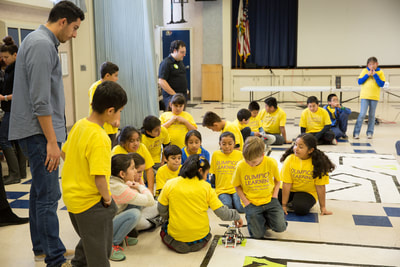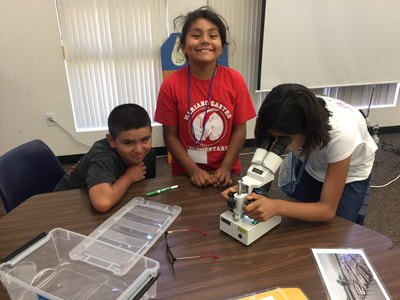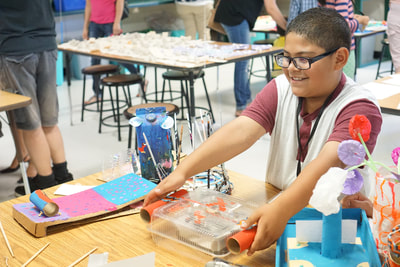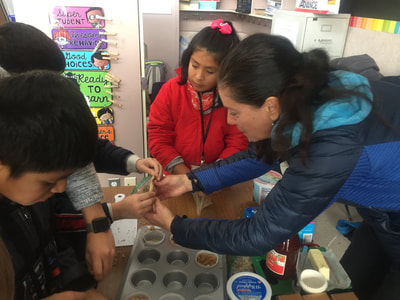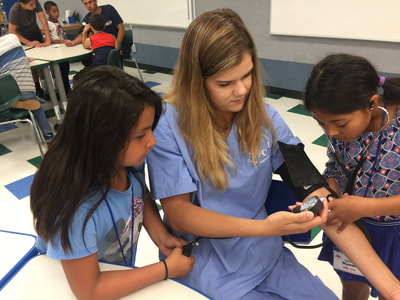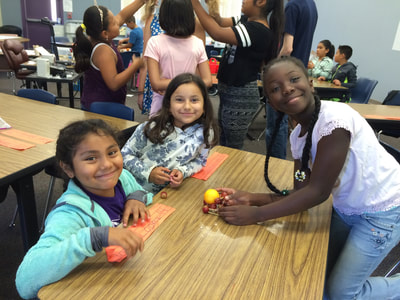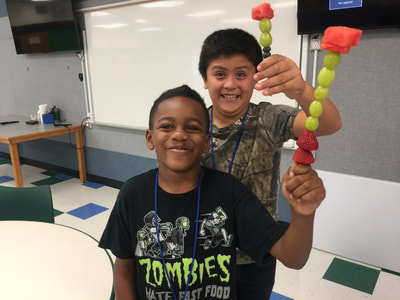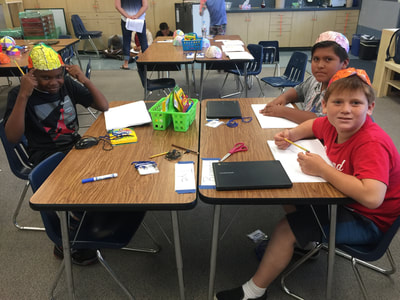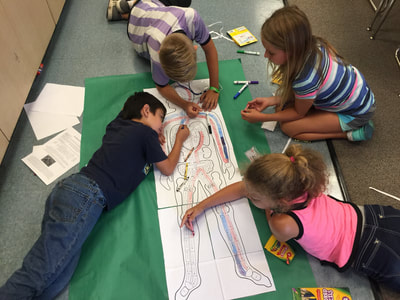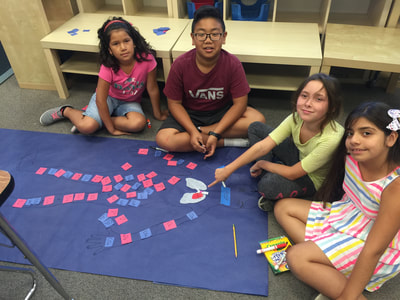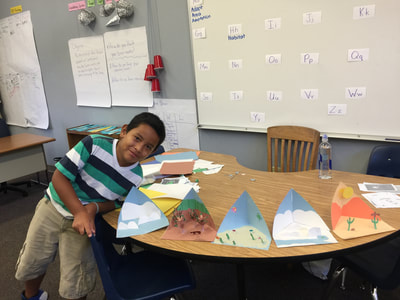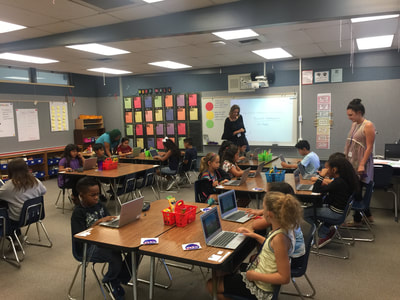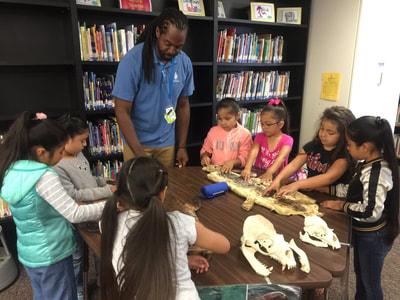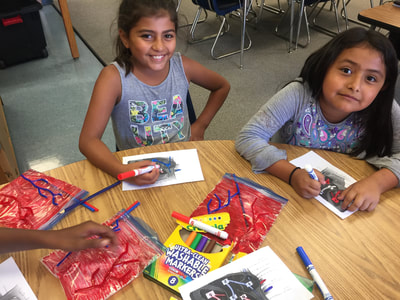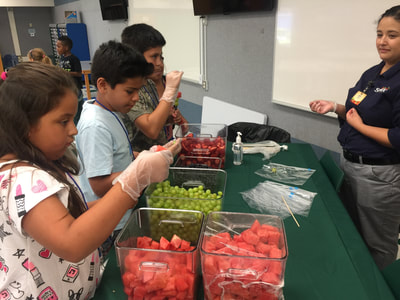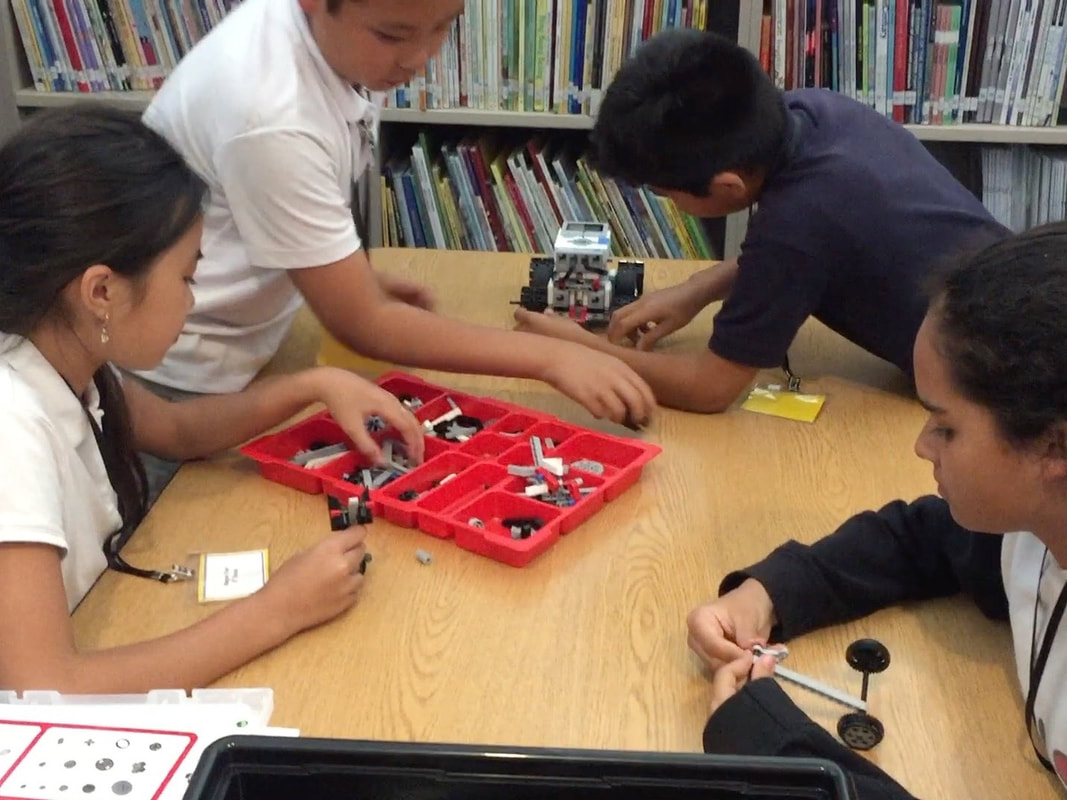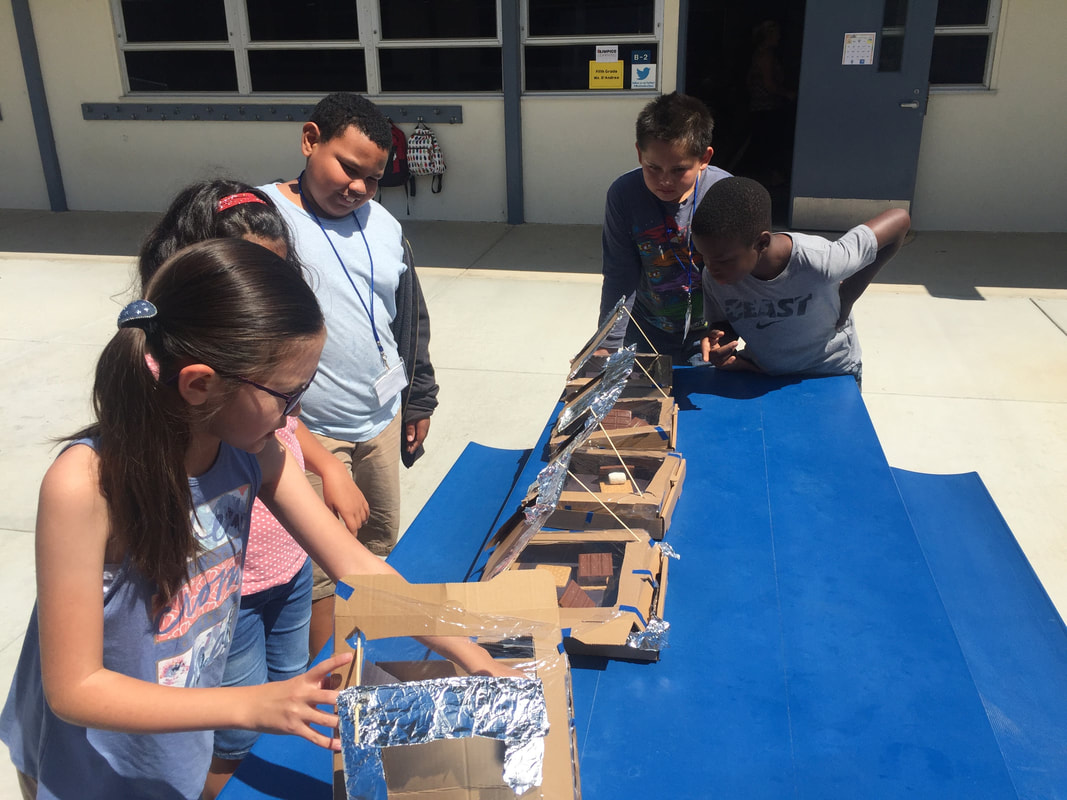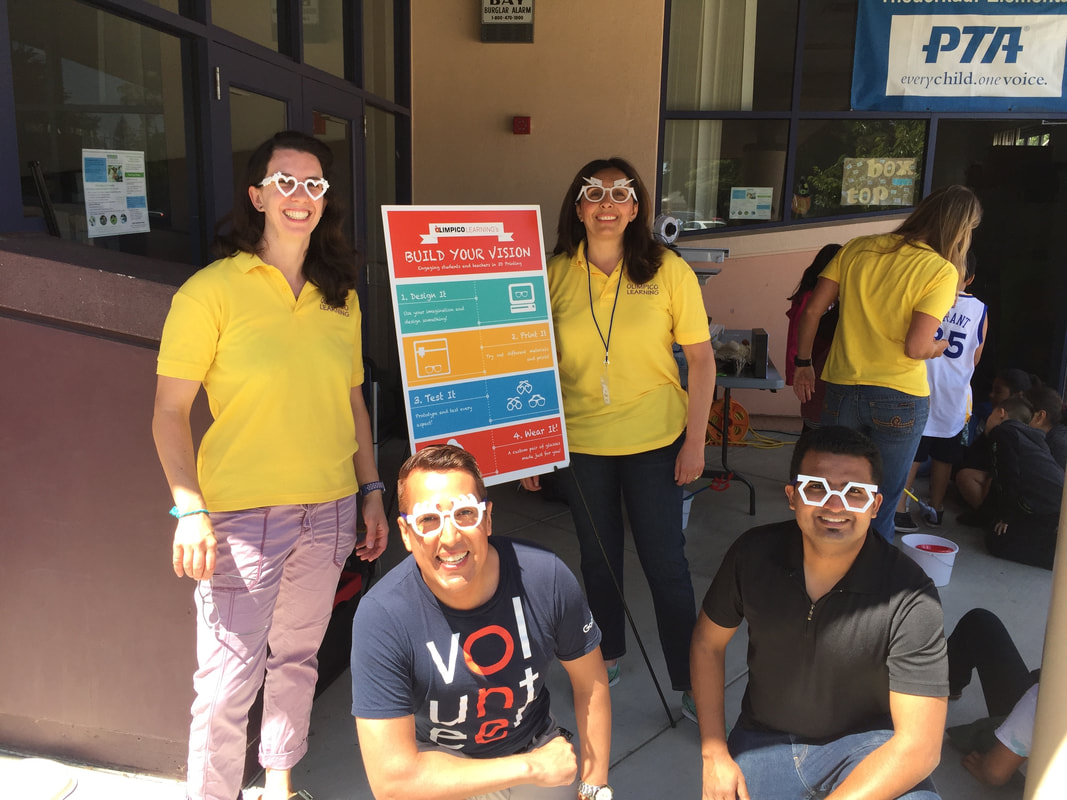Olimpico Foundational Education
In-person and e-Learning
Olimpico Learning incorporates daily reading, writing, and math to ensure students improve the literacy and mathematical skills necessary for communication and computation. Alongside this, we provide STEAM focused activities to advance scientific and problem-solving knowledge. By developing these essential skills, Olimpico Learning offers the resources necessary for a long-term, educational impact on students, families, and the greater community.
BiologyLearn about ecosystems, animal habitats and adaptations through hands-on engaging activities and projects. Students collaborate to create a digital story embedding narrations, photos and illustrations to share their learning of the science of life.
|
EcologyInvestigate the importance of the 3 R’s, Recycle, Reduce and Reuse, using an inquiry-based approach. Students will use the Engineering Design Process to repurpose/invent a usable product from recyclable materials.
|
AstronomyThe Solar System is the home of many ice worlds. Examine the importance of water in the form of ice in the Solar System and examine the origin of Earth's water. Discover how ancient civilizations were influenced by astronomy and how it shaped the world we all live in today.
|
ChefologyTravel the globe without leaving the classroom and learn about the science and math of cooking! Explore and learn about various international cultures and cuisines by working as a team to chop, mix, knead and roll your way to delicious creations.
|
Olimpico Academic Program
Our academic program provides students with integrated learning experiences that revolve around a weekly science-based theme. The Olimpico Learning curriculum offers an enriching learning environment integrating language arts, math, science and art through hands-on projects and group activities that build academic skills. Each week, students are introduced to a new scientific topic and encouraged to engage in hands-on and project based learning, science exploration, and art activities. Interaction with technology-based projects immerses students in project based learning and prompts a fascination with new and advances topics. Each year we select four themes from our set of 12 science-based curriculum topics and implement lessons surrounding one of these chosen themes each week.
Olimpico STEAM Workshops
Interactive STEAM workshops engage students in exploring design thinking processes, visual art and fundamental concepts of computer science and problem-solving. Through multidisciplinary activities, students will learn the fundamentals of 3D modeling, computational thinking, visual programming, and product design. Students are provided with digital tools to practice and reinforce content learning, all of which are aligned with the Common Core and Next Generation Science Standards. Students will interact with visiting Silicon Valley design professionals in hands-on activities and projects where they will generate solutions through brainstorming, group collaboration, project design, project planning and implementation, peer reviews and critiques.
Weekly Science Themes
Agriculture
Students learn how food arrives on their tables and what it takes to cultivate crops! Students will explore the differences between organic and conventional farming, grow their own beans, and learn how to support organic farms.
Animation
Students learn the importance of frames in an animation and process of filming
Astronomy
Students learn about the different components of space and what it takes to become an astronaut! Students will research the solar system, discover the differences between planets, and understand how ancient civilizations were influenced by astronomy.
Biology
Learn about the natural world, animals, and plants during biology week! One project students will participate in is collaborating with their peers to create a digital story by embedding narrations, photos, and illustrations to share their knowledge of the science of life.
Chefology
Travel the globe to learn about the science and math of cooking during Chefology week! Students will explore a balanced diet and discover various international cultures and cuisines by working as a team to chop, mix, knead, and roll their way to delicious creations.
Ecology
Investigate ecosystems and the differences between producers, decomposers, and consumers during ecology week! Students will learn about reducing, reusing, and recycling, and will use the Engineering Design Process to invent a usable product from recyclable materials
Engineering
Students learn what engineers do to solve problems that may arise in the society
Health
Explore how to live a balanced and sustainable lifestyle during health week! By discovering the importance of a nutritious diet, daily exercise, and a stable sleep schedule, students will understand how to keep themselves happy and safe.
Meteorology
Survey the atmosphere and learn about how people predict weather during meteorology week! Students will learn about the temperature, different types of weather, staying safe during a natural disaster, and how to identify different types of clouds.
Oceanography
Dive deep into the water and explore the different components of oceans during oceanography week! By learning about different types of marine life, the flow of currents in the water, and the five different oceans across the globe, students will become oceanography experts.
Physiology
Students will learn about the human body! By creating model lungs and replicating how the heart pumps blood, students will learn about how body systems keep them alive.
Zoology
Discover the hidden traits and behaviors of animals during zoology week! Students will learn about adaptations, habitats, and what animals need to survive, and will create projects like camouflaging butterflies and model zoos.
Students learn how food arrives on their tables and what it takes to cultivate crops! Students will explore the differences between organic and conventional farming, grow their own beans, and learn how to support organic farms.
Animation
Students learn the importance of frames in an animation and process of filming
Astronomy
Students learn about the different components of space and what it takes to become an astronaut! Students will research the solar system, discover the differences between planets, and understand how ancient civilizations were influenced by astronomy.
Biology
Learn about the natural world, animals, and plants during biology week! One project students will participate in is collaborating with their peers to create a digital story by embedding narrations, photos, and illustrations to share their knowledge of the science of life.
Chefology
Travel the globe to learn about the science and math of cooking during Chefology week! Students will explore a balanced diet and discover various international cultures and cuisines by working as a team to chop, mix, knead, and roll their way to delicious creations.
Ecology
Investigate ecosystems and the differences between producers, decomposers, and consumers during ecology week! Students will learn about reducing, reusing, and recycling, and will use the Engineering Design Process to invent a usable product from recyclable materials
Engineering
Students learn what engineers do to solve problems that may arise in the society
Health
Explore how to live a balanced and sustainable lifestyle during health week! By discovering the importance of a nutritious diet, daily exercise, and a stable sleep schedule, students will understand how to keep themselves happy and safe.
Meteorology
Survey the atmosphere and learn about how people predict weather during meteorology week! Students will learn about the temperature, different types of weather, staying safe during a natural disaster, and how to identify different types of clouds.
Oceanography
Dive deep into the water and explore the different components of oceans during oceanography week! By learning about different types of marine life, the flow of currents in the water, and the five different oceans across the globe, students will become oceanography experts.
Physiology
Students will learn about the human body! By creating model lungs and replicating how the heart pumps blood, students will learn about how body systems keep them alive.
Zoology
Discover the hidden traits and behaviors of animals during zoology week! Students will learn about adaptations, habitats, and what animals need to survive, and will create projects like camouflaging butterflies and model zoos.
|
Olimpico Writing curriculum
reading writing speaking listening storytelling presentation skills informative, opinion, and narrative writing |
Olimpico STEAM curriculum
creativity customized learning based on the student’s needs collaboration and peer review differentiated math instruction a balance between skill development and mastery of major math concepts labs in design thinking, visual art, 3D modeling and computer programming |
We achieve this by
leading with social and emotional skill building
equipping teachers and volunteers with intensive training
tracking data, evaluating, measuring improvements, and evolving continuously
leading with social and emotional skill building
equipping teachers and volunteers with intensive training
tracking data, evaluating, measuring improvements, and evolving continuously
